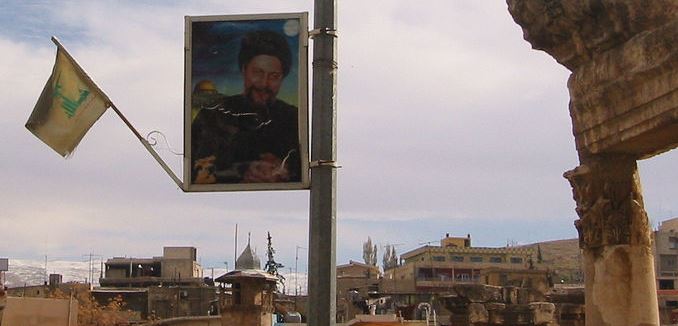Hezbollah’s involvement in the Syrian war has allowed the Bashar al-Assad regime to steadily erode two years of rebel advances and seize the momentum in the conflict. The opposition stronghold of Qusayr fell to a campaign that combined ground troops from the Iran-backed terror group with air support from the Syrian military.
Back inside its home base of Lebanon, the organization’s entanglement in the Syrian conflict has been decidedly less successful. Spillover in the form of deepening sectarian tensions have led to outbursts of violence. Sunni jihadists have even more directly exported the war from Syria into Lebanon, detonating car bombs in Hezbollah strongholds. Lebanese stability deteriorated further last weekend, when a gun battle between Hezbollah supporters and members of a Sunni clan in Baalbek that left five people dead.
Hezbollah has responded by bolstering the state-within-state that it has carved out inside Lebanon. It turned its Beirut neighborhoods into fortresses, setting up security procedures and checkpoints.
Both Hezbollah’s involvement in Syria and its efforts to contain the blowback have generated resentment in Lebanon. Top Lebanese officials have blasted the group for bringing Lebanon to the brink of collapse. The organization has also been blamed for destabilizing the country in general, and for forcing refugees to flee.
In recent days Hezbollah surrendered control of the city’s checkpoints to the Lebanese Armed Forces. Analysts debated whether the concession was a result of increasing domestic pressure and criticism – even Shiite clerics are calling on the group to dampen sectarian tensions – or whether Hezbollah has been spread so thin that it needed reinforcements in any form.
Either way, Hezbollah is reportedly bringing some troops home:
Lebanese Shi’ite militant group Hezbollah has reportedly begun to remove some of its troops embattled in Syria in support of President Bashar Assad, The Times of London reported on Friday. The report cited diplomatic and intelligence sources in Beirut who said there had been a reduction in the number of the group’s troops in Syria.
Foreign Policy magazine Middle East editor David Kenner is skeptical:
How is this still a story? Hezbollah is not going to withdraw from Syria. http://t.co/sBeKdT1KRM
— DavidKenner (@DavidKenner) October 4, 2013
The conflicting reports nevertheless reflect confusion over Hezbollah’s moves to regain its credibility. Observers fear that, in addition, Hezbollah will seek to instigate a conflict with Israel. A battle with the Jewish state would help the group restore its long-developed brand as a “resistance” organization defending Lebanese sovereignty, a characterization that has found sympathy in Tehran and in some corners of the Western foreign policy community. The organization’s fighting in Syria, done at the behest of its Iranian sponsors, aligned poorly with those carefully cultivated claims.
[Photo: moogdroog / Flickr]




